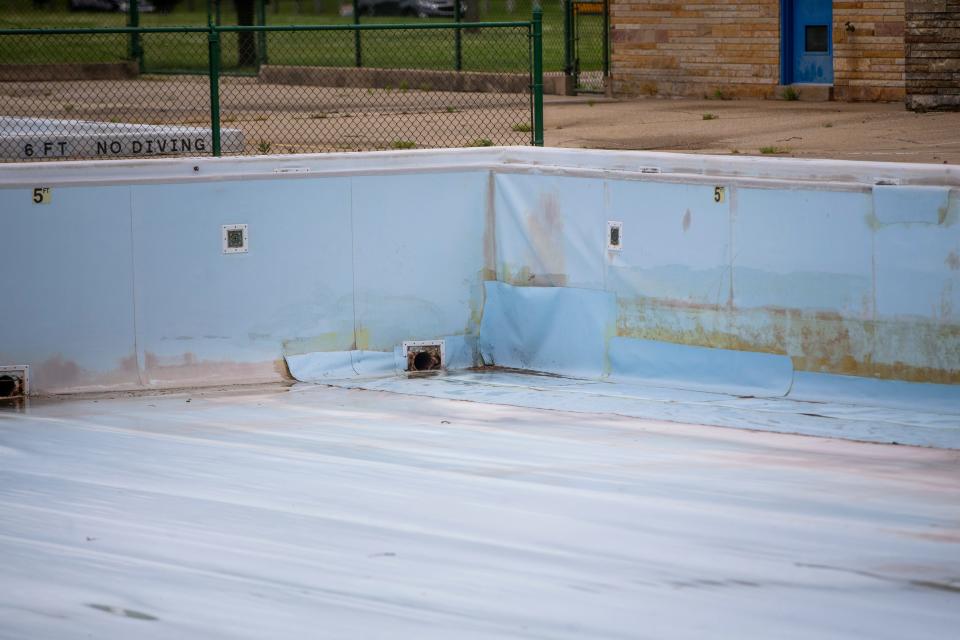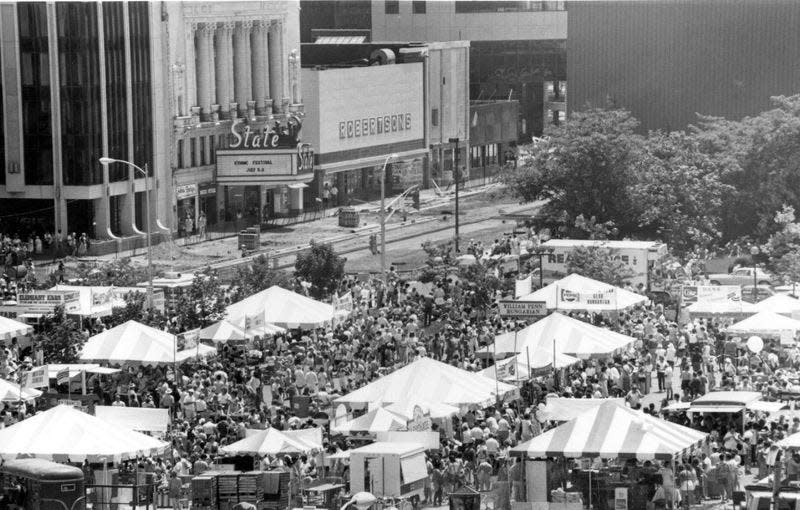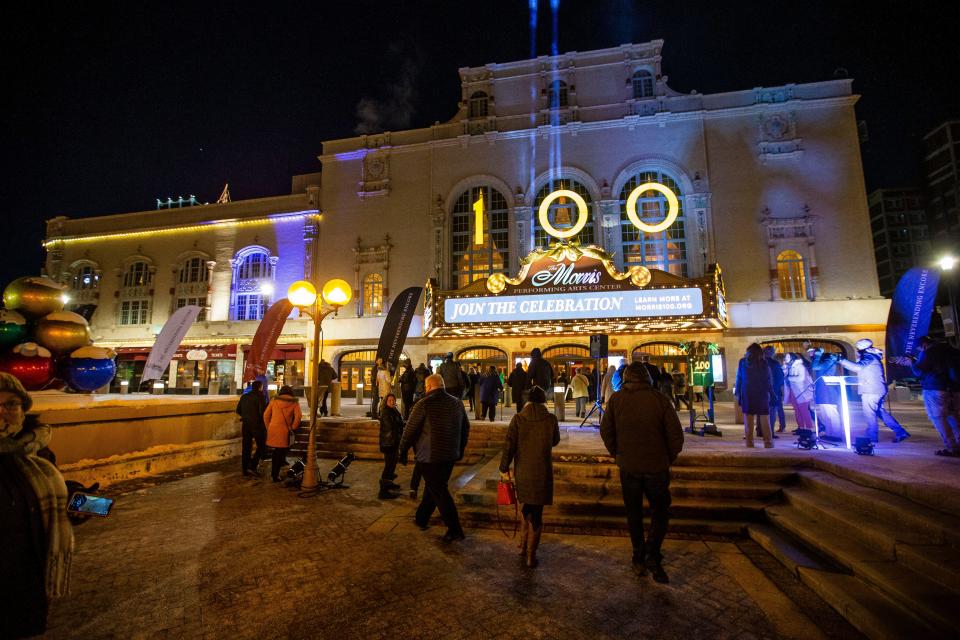5 Venue Parks & Arts updates for 2023, including the future of Potawatomi Pool
SOUTH BEND ― Several one-time capital expenditures and a reorganization of city departments ballooned the Venues Parks & Arts budget for 2023 to $46 million, a 51% increase from its 2022 allocation.
Although VPA Executive Director Aaron Perri said the apparent funding spike is somewhat misleading and won't be a stable portion of the department's budget, he highlighted several new projects poised to occur in 2023 during a presentation Wednesday.
Budget overview:South Bend projects 16% annual increase as it adds new positions amid inflation
The largest expense is about $6 million going toward construction of the Dream Center at Martin Luther King Jr. Park, he said. The facility is to be finished by early 2024.
The Potawatomi Zoo will receive $1.1 million as part of a 15-year payment plan. Another $1.5 million will be managed by VPA after the community initiatives division, which leads gun violence prevention and youth outreach programming, is shifted over from the mayor's office.
Here are five projects for 2023 that Perri highlighted:
Potawatomi pool's future

Although the Potawatomi Park pool is driving conversation because of public demand for it to reopen next summer, Perri said no money in the department's 2023 budget has yet been allotted to repair it.
The 67-year-old municipal pool remained closed this summer because of cracks in the concrete foundation beneath the pool liner, he said. City officials found out the pool can no longer hold water when they tried to fill it this spring.
More:Why decades-old Potawatomi Park pool in South Bend closed this summer
A report by the firm Faust Engineering, which Perri said he didn't receive until early Wednesday, revealed that any repairs to merely reopen the pool will cost millions of dollars.
It's unclear when or if the pool will reopen at this point. Instead of rushing to repair the aging structure, Perri said, he and the mayor's office are taking a broader view of the redevelopment. He compared the process to the closure years ago of Howard Park's ice skating rink, which, instead of being restored, was eventually replaced with an ice skating ribbon.
"We don't have the answers right now, but we'll have to unpack (the report)," Perri said. "Our hope is that we can get some form of aquatics back at Potawatomi … in the short term while we work on this larger plan."
Three people said during public comment that they want South Bend to have not one but two municipal pools, proposing the addition of a second at the Kennedy Park Water Playground on the west side. They worried about disgruntled parents forced to take their children to Mishawaka or even Lake Michigan to swim.
Cheryl Walsh, the River Park Neighborhood Association president, said she thinks the community needs two pools because of the burden that carting children miles across the city can present. An online petition she started, which had more than 740 signatures as of Wednesday, notes that the pool had about 7,000 visitors during the eight-week period it was open last year.
"When the pool closed at Potawatomi and we were told to send our kids to Kennedy, that's not an easy transportation," Walsh said. "And it's not easy for Kennedy's side of town to come down to Potawatomi."
She said South Bend feels as if it's "being chopped into this section, that section, so if you're here, you get this, if you're here, you don't get that."
Return of The Ethnic Festival

Perri asked for about $300,000 to be devoted to a resurgence of the Ethnic Festival, which was one of the largest summer events hosted in South Bend throughout the 1970s and ❜80s.
Drawing crowds that packed Michigan Street downtown, the festival was founded in 1974 and ran through the mid-1990s, when it was renamed Summer in the City and moved to Howard Park. The event featured a variety of cuisines and music, gathering people from different corners of the region.
The proposal would add the festival to 2023's Best Week Ever, so it would take place in the summer. This year's Best Week Ever will be held the last week of September.
Perri said the Ethnic Fest would be a pilot program, planned for only one year until the city receives feedback. Security and fencing are two of the most challenging factors to consider while planning the fest, he added.
"The committees that we form around it should be as diverse as the vendors that we have there," Perri said, "and the effort it's going to take to plan this is going to take all of us."
Seitz Park underway
A $3.6 million construction project, $1 million of which will be paid by the University of Notre Dame, is underway to renovate Seitz Park for a reopening in late summer 2023.
The popular gathering spot near Howard Park closed in August 2019 so that Notre Dame could work on a $27.1 million hydroelectric plant on the St. Joseph River. The completion date was delayed by a year because of the complexity of state and federal permits needed to run the plant while ensuring that it won't harm fish or the river bottom. The park was supposed to reopen in fall 2021.
Notre Dame's hydroelectric turbines at Seitz Park are now complete and generating electricity, Perri said. The plant is expected to meet about 7% of the university's electrical needs and offset nearly 9,700 tons of carbon emissions each year.
More:Notre Dame sidesteps eminent domain ruling to complete Seitz Park hydroelectric plant
The Firefighters Memorial sculpture, in storage since January 2019, will be reinstalled in the park along with the Light Forest, which will be reconditioned with new LED lights. The commemorative bricks used to fundraise for the River Lights project will be restored, and the fish ladder is unchanged.
The renovated park will include a slightly larger performance pavilion, new seating areas, improvements to the East Race bridge and promenade, and a new building with concessions and year-round restrooms to replace the portable toilets that had been used.
A new Public Arts Coordinator

Venue Parks & Arts seeks to create a new position to diversify the talent on display at the Morris Performing Arts Center and to work with public muralists, Perri said.
The public arts coordinator would primarily oversee the department's initiative to improve equity in the arts. The committee in charge of celebrating the Morris' 100-year anniversary proposed the position after members came to agree "arts are not equitable and accessible to everyone in our community," Perri said.
Tell us your story:'Morris Memories' sought as theater turns 100
"How can we diversify the types of acts that are coming into the Morris, diversify the types of promoters that are looking to rent the Morris?" Perri said. He said the Morris 100 campaign is working to build a $1 million endowment to fund the initiatives the committee proposes.
Although an estimated 70% of the coordinator's time will be devoted to advancing equity, Perri said, the employee also will be a formal resource for public artists looking to paint murals or create public art. This year's "Mural Mania" showed a gap in the city's response to such requests, he said.
'Mural Mania':South Bend hosts first-ever mural festival
Plenty of new trees
Exactly 807 new trees are budgeted to be planted next year, targeted toward areas on the west and southwest sides of the city where the canopy is sparsest, Perri said. That's more than double the number of trees the city has planted annually over the past five years.
South Bend's existing average of land covered by tree canopy is 25.9%, which falls well short of American Forests' recommended goal of 40%, according to data Perri shared. It is slightly higher than the statewide average of 24.6%, however, and barely above Indiana's north-central regional average among similar communities of 25.5%.
Tree canopy "matters around public safety. That matters around property values. That matters around urban heat index and stormwater management," Perri said. "These are important conversations to have when we talk about equity."
Predominantly Black and Hispanic neighborhoods west of downtown, between Lincoln Way West and Sample Street, will benefit most from the planting because they disproportionately experience a lack of tree cover, according to a Tree Equity Score analysis used by VPA.
The city will spend $50,000, to be matched by a private $50,000 gift, to plant the trees on city-owned properties. The new trees are separate from those planted in parks and through the Community Canopy Tree Program, Perri said.
Email South Bend Tribune city reporter Jordan Smith at JTsmith@gannett.com. Follow him on Twitter: @jordantsmith09.
This article originally appeared on South Bend Tribune: South Bend Venue Parks & Arts plans for 2023, Potawatomi pool repairs

